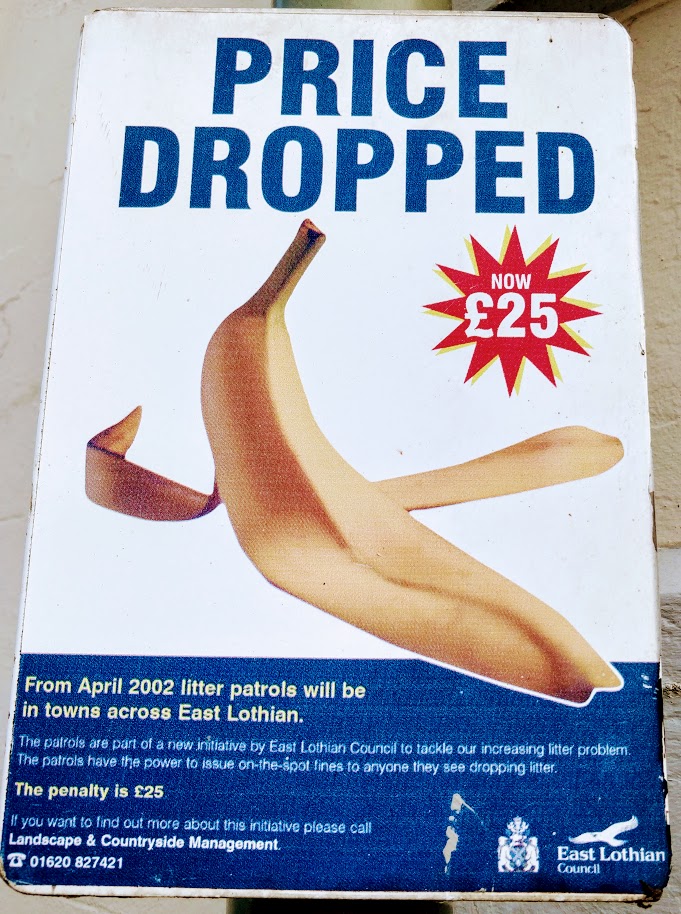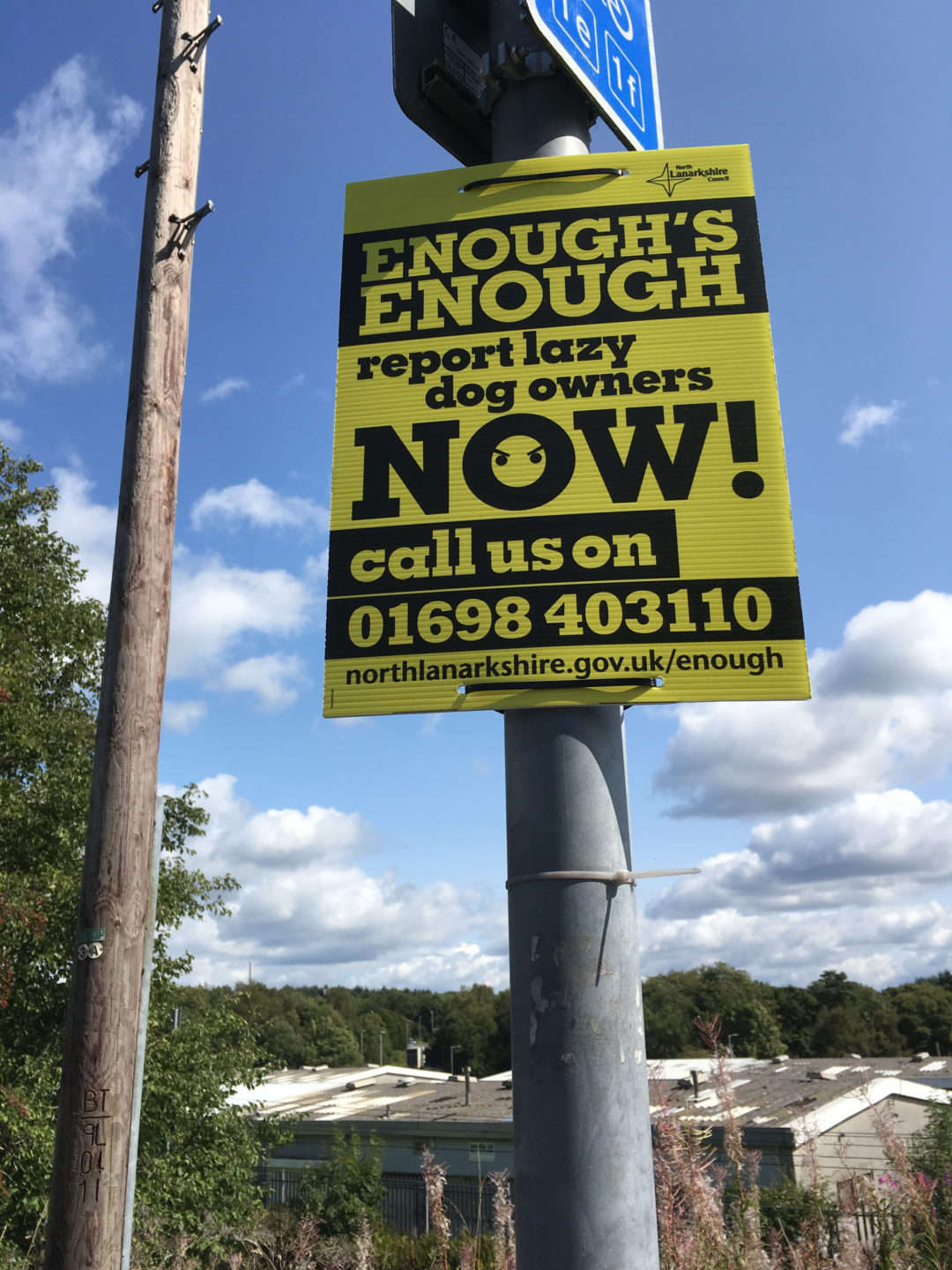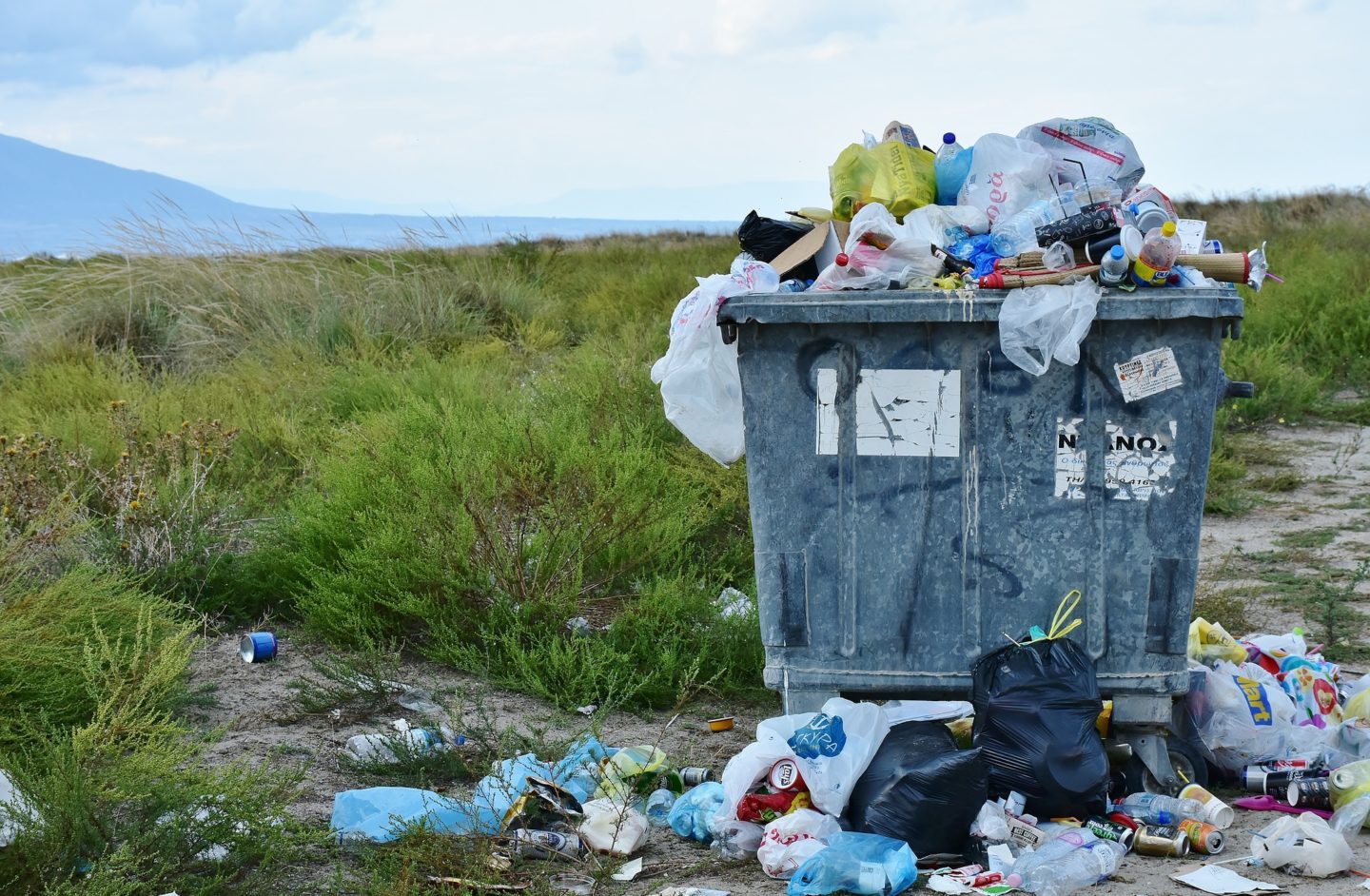People issued with fines for dropping litter in eight Scottish council areas faced no chance of being referred to the courts if they simply refused to pay, The Ferret can reveal.
Across the country, Scottish local authorities issued more than 42,261 tickets for litter over three years. However, data released under freedom of information law suggests that fewer than half of these tickets, which carry an £80 fine, were paid.
Of those unpaid tickets, just 756, or 13 per cent, were referred to the courts for further enforcement, meaning that at least 2,092 people were let-off without paying their fine.
The Scottish Conservatives said that council efforts to crack down on littering were “pointless” without “proper enforcement” such as fines and prosecutions.
People referred to the courts for failing to pay a fixed penalty notice could receive a fine of up to £2,500 and a criminal record, if found guilty.
Dealing with litter and fly-tipping is said to cost tax-payers £53 million per year. But in eight council areas, not one unpaid ticket was referred to the procurator fiscal.
In North Lanarkshire, the council with the largest number of unpaid tickets, officers issued 1,980 litter fines over three years but only 888 were subsequently paid. Not a single one of the remaining 1,092 unpaid tickets were referred to the courts. The council did not refer unpaid tickets for dog-fouling and fly-tipping to the courts either.
Elsewhere, Argyll and Bute, East Lothian, Falkirk, Highland, South Ayrshire, Stirling and West Dunbartonshire councils all failed to make referrals for unpaid litter tickets to the procurator fiscal. Between them they administer an area of land larger than Belgium.

Our probe found that Scottish councils took no action on 2,092 unpaid litter tickets over three years, but these figures do not include Scotland’s largest city.
Glasgow City Council issued the largest number of fixed penalty tickets in the country by some margin. It issued 36,380 tickets over three years, but just 46 per cent were paid.
The council has refused to reveal what proportion of the 19,608 unpaid tickets it issued were referred to the procurator fiscal. The Scottish Information Commissioner is currently investigating.
The Scottish Conservatives said it was “absolutely right” for councils to crack down on littering.
“Fly-tipping is not only unsightly but can be extremely dangerous and dependent on materials dumped, it can create an environmental hazard as well as an unwelcome blot on the landscape”, said Tory local government spokesman, Alexander Stewart MSP.
“Dog fouling has the potential to spread diseases such as toxocariasis which can cause serious illness, and can even lead to blindness.
“This cracking-down, however, is pointless unless the councils are able to back it up by proper enforcement; ensuring fines are paid and prosecutions are progressed. If people feel these punishments are unenforceable and they can get away with it, this will do absolutely nothing to deter this heinous and careless behaviour.”
Pete Leonard, operations director at Keep Scotland Beautiful, said that it was important for “all local authorities to follow up on unpaid fines,” and pointed out that a key aim of the government’s national litter strategy was to strengthen the enforcement system.
John Mayhew, the Director of the Association for the Protection of Rural Scotland called on local authorities to prosecute people for littering, which he said spoils “our valued rural landscapes and damages the quality of life of local residents and visitors”.

However, he thought it was unsurprising that councils struggled to do so because of funding cuts. “When local authorities are even closing public toilets across Scotland it’s inevitable that their monitoring and enforcement of environmental offences will fall short,” he said.
Seeking solutions
Mayhew added: “The Scottish Government’s forthcoming deposit return system for drinks containers will help to some extent, but it can’t address other littering or fly-tipping issues. The only real long-term solution is for legislation to require all manufacturers to be 100 per cent responsible for the recovery and reuse or recycling of their products and packaging as part of a more circular economy – along with major doses of public education.”
Extended producer responsibility (EPR) is a scheme that puts the onus on manufacturers and brands to take environmental responsibility for the products they sell, and the associated packaging. Such actions can include arranging and helping to pay for waste collections, recycling and responsible disposal, designing products for re-use or recyclability and encouraging consumers to correctly dispose of their products.
Aberdeenshire Litter Initiative (ALI) is a community group which encourages Aberdeenshire residents to ‘Adopt a Street’ in order to keep it clear of litter, believes that a widespread approach is required to tackle littering.
“Enforcement on its own isn’t enough,” said anti-litter campaigner, George Niblock. “It has to be an integrated and sustained solution across the whole of Scotland that involves education, campaigning, enforcement and getting the streets clean. The basic fundamental of keeping the streets clean that’s required by law is ignored by all those duty bodies substantially.”
Leithers Don’t Litter, a campaign group in Leith, north of Edinburgh’s city centre was inspired by ALI and believes that the issue can be tackled with community action.
“We want to turn clicktivists into activists”, said founder, Zsuzsa Farrell. “We want to show people that their actions can make a difference – report mess to the council or clean it up yourself, for example. That’s why we have a before-after photo album on Facebook.”
Farrell’s group visits schools and youth organisations to talk about the damage caused by littering, and gives out Leithers Don’t Litter badges, anti-litter posters, and “poofighters” badges and bin stickers to deter dog fouling throughout Leith.
Farrell also believes brands should take some responsibility for waste. Her group held “Crapitalism”, a “Rubbish Exhibition” which aimed to expose big brands who she said take “very little responsibility” for the waste they produce and instead pass the disposal costs to local authorities.
“They sponsor litterpicks to clean their conscience while many of them still oppose the introduction of a deposit return scheme”, said Farrell, who has campaigned for the scheme.
She called for “more enforceable” legislation from the Scottish Parliament and enough wardens to enforce littering fines. It was much easier to prosecute offenders of environmental crime in England than in Scotland, she argued. “In England it’s the civil court that prosecutes but in Scotland it’s the criminal court so prosecutors are less likely to take the case forward because they have more pressing priorities.”
A spokesman from the Convention of Scottish Local Authorities (Cosla) said that the enforcement of littering fines was an operational matter for individual authorities, but that cuts to local government funding make it more difficult to maintain such services.
What councils said in full
An Argyll and Bute Council spokesperson said: “We urge people to do the right thing and dispose properly of their litter and waste and to clean up after their pets. Fortunately, the vast majority of people in Argyll and Bute behave responsibly and we therefor issue a relatively small number of these fines. Pursuing non-payers through the courts for what is often a small financial penalty is rarely cost effective, although we will go down that route where appropriate.”
An East Lothian Council spokesperson said: “Council teams are very proactive in working hard to keep East Lothian clean and an attractive place for residents to live, as well as for the many visitors who enjoy our local attractions.
“We have a strong policy of litter and waste awareness with an emphasis on public information and engagement. We have introduced a number of measures in recent years including a dog watch scheme promoting responsible dog ownership including the need to clean up and are working in partnership with Police Scotland on a rural crime initiative which includes a focus on fly tipping.
“The Community Wardens also carry out advisory visits to schools and other community groups in addition to regular patrols which have resulted in a measurable decrease in litter across the county. The recent Code of Practice on Litter and Refuse statutory guidance provides local authorities with clear targets on litter and refuse which we aim to reach for each category.
“We appreciate the support of the many local organisations who take pride in local communities. Our website and the My East Lothian App can be used to alert the council to any issues requiring attention. Last week, we hosted the Beautiful Scotland Awards, held by Keep Scotland Beautiful. There were awards for North Berwick in Bloom, Blooming Haddington and Dunbar in Bloom, while the council received the Wright Sustainability Award.”
A Falkirk Council spokesperson said: “The council makes every effort to recover payments for fines it has issued. Unfortunately it can be difficult to refer some cases to the court due to the significant amount of evidence needed for a successful prosecution.
“We continue to take action against those responsible and have recently introduced CCTV to gather important evidence and this will be used wherever possible to prosecute those responsible.
“We believe the long term solution to litter and other related issues such as dog fouling and illegal dumping is to prevent them from happening in the first place and work closely with communities and organisations such as Zero Waste Scotland to promote this approach.”
A Glasgow City Council spokeswoman said:
“Littering, fly tipping and dog fouling are clear examples of anti-social behaviour. We will issue fixed penalty notices where we have evidence to support these, and work within the framework of the current system.
“De-criminalisation of littering and fly tipping could potentially provide greater scope to pursue non-payment through the council’s debt recovery channels.”
A Highland Council spokesperson said: “The council recognises the important role of enforcement as a preventative measure in the Scottish Government’s litter strategy and the Code of Practice on Litter and Refuse. The council regularly issues fixed penalty notices for fly-tipping, littering and dog fouling and has referred non-payment cases to the procurator fiscal. However, to improve effectiveness in these areas the council is currently reviewing the administration of payments of fixed penalty notices and the procedures on pursuing non-payment of fines.”
A North Lanarkshire Council spokesperson said: “North Lanarkshire Council’s payment rate for Fixed Penalty Notices for littering is among the highest in Scotland, currently at 49%. We aim to refer all unpaid notices issued on the basis of corroborated evidence to the Procurator Fiscal, but similar to all local authorities in Scotland, there are complex reasons why some are not.
“With councils facing ongoing budget cuts, we prioritise our resources and targeting those inconsiderate people who drop litter, fly tip or don’t clean up after their dogs by issuing FPNs. Our successful dog fouling campaign Enough’s Enough has reduced dog fouling across the authority and we are just about to launch a campaign to tackle litter and fly tipping in North Lanarkshire, highlighting that these actions are socially unacceptable – we make no apologies for tackling matters that communities highlight as important.”
A South Ayrshire Council spokesperson said:
“Anyone stopped and fined for littering, fly-tipping and dog fouling has to deal with the issue there and then with no waste left behind in our communities as a result. We follow-up on all unpaid fines for litter and fly-tipping with reminders, but with limited resources these are not routinely referred to the procurator fiscal. Cases of unpaid fines for dog fouling are referred to Sheriff Officers for further investigation and are only ever written off on their advice.”
A Stirling Council spokesperson said: “The fact we have issued more than 500 fines for fly tipping, littering and dog fouling over the past three years, plus additional fines for parking contravention, proves that we take enforcement seriously.
“Our aim is to encourage a culture of compliance through education, engagement and ultimately enforcement and where action is needed, we will take it. As the figures for fine recovery show, work remains to be done to achieve this aim and we are determined to see it through.
“Building a strong and resilient enforcement team has also been a key focus for Stirling Council over the past year and we have recently invested in this service by bringing in an additional five full time equivalent officers.”
We approached West Dumbartonshire Council for comment, but did not receive a response.
Update: This article was updated at 15:10 on 28 September 2018 to include a reaction from North Lanarkshire Council.
Get the data
Paying members of The Ferret can access the complete data for this story. If you are not already a member, you can join here.
Download “Environmental Fines”
Environmental-Fines-Ferret.xlsx – Downloaded 2 times – 30.17 KB













